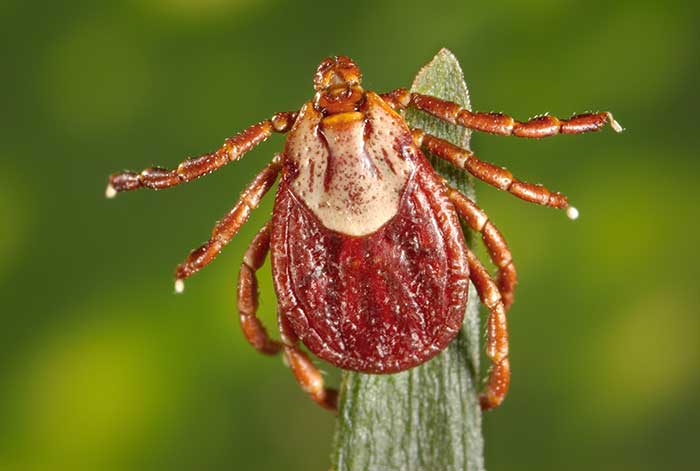
San Diego County public health officials are raising awareness of a disease known as Rocky Mountain Spotted Fever following the tragic death of a San Diego resident who traveled to the Baja California region before falling ill.
Rocky Mountain Spotted Fever is a disease transmitted by ticks to humans and dogs. Areas where these ticks may be encountered include hiking trails and grassy or wooded areas, usually during the wetter months of winter and spring. However, traveling to places where stray dogs are common, like Baja California, poses a year-round risk due to infected ticks carried by strays.
Protection measures include wearing insect repellent and appropriate clothing, as well as using insect control products on pets to eliminate fleas and ticks.
Prompt antibiotic treatment is effective when Rocky Mountain Spotted Fever is diagnosed within the first week of illness. Early symptoms, which might initially only include fever, headaches, and stomach upset, should be reported to a doctor, especially if recent outdoor travel activities and insect bites are involved.
Although Rocky Mountain Spotted Fever is a year-round risk in the Baja California region, San Diego County typically records one to three cases annually. All three cases among county residents this year had traveled to areas where the disease is more common. The most recent local death from this illness occurred in 2014, when an Imperial County resident passed away in a San Diego hospital.
The County’s Vector Control Program monitors the population of vectors—animals such as ticks, rodents, and mosquitoes—that can transmit diseases to people.
Ticks are minuscule, eight-legged insects related to spiders. They wait on the tops of bushes and branches to bite passing animals and people. During their blood meal, they can spread any germs they are carrying. In addition to Rocky Mountain Spotted Fever, ticks also carry other diseases such as Lyme disease and tularemia.
Health officials advise checking for ticks on yourself and your pets as soon as possible after outdoor activities such as hiking to lower the risk of infection from tick bites. If bitten by a tick, it should be carefully removed with tweezers. Saving the tick for identification is suggested, as only specific ticks carry Rocky Mountain Spotted Fever.
Anyone who develops a rash or fever after being bitten should seek medical attention, reporting the tick bite, when it happened, and the location.
For further information on protecting yourself and pets from ticks and how to properly remove ticks, visit Ticks (sandiegocounty.gov).

